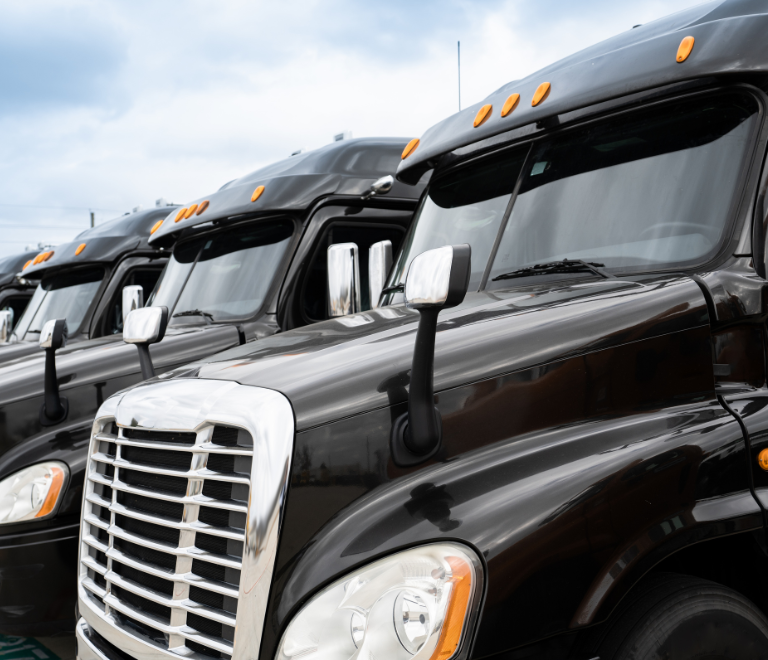Owners and operators of fleets get the best of both worlds. They enjoy the freedom and flexibility of an owner-operator while still enjoying the advantages of a fleet owner, such as economies of scale and centralized management. Since they are free to partner with any carrier, they often have more clout in the market. As a result, they have more control over their income and can continue to live independently. Fleet owners/operators can give their clients high-quality service while also preserving a healthy work/life balance.
Advantages And Disadvantages Of Being A Fleet Owner
When deciding whether to run a fleet of cars, fleet owners must consider several benefits and drawbacks. The benefits of being a fleet owner include less wear and tear on any one vehicle, cost savings on fuel and maintenance, and easier replacement of underperforming or unreliable cars. Owners of fleets must also overcome some major obstacles, though.
One is the requirement to keep an adequate number of automobiles in stock to satisfy client demand; this can be expensive if demand is erratic or irregular. Another issue is that, even when they were not the drivers of the vehicles involved in the accident, fleet owners are frequently held accountable. Litigation and high insurance rates may result from this. In the end, the choice to buy a fleet of cars comes down to the particular requirements of the business owner and the kinds of cars being used.
Advantages And Disadvantages Of Being An Owner-Operator
Being an owner-operator in the trucking industry has benefits and drawbacks. Owner-operators are independent contractors who are in charge of their trucks and expenses whereas fleet owners hire a crew of drivers who work for them and participate in the earnings. Compared to fleet drivers, owner-operators often earn more per mile, but they also incur higher costs. It can be risky, but having your truck can also be profitable.
Pros Of Being A Fleet Owner
The benefits of fleet ownership over individual truck ownership and operation are numerous. By owning more than one truck, fleet operators can benefit from economies of scale and the flexibility to pool resources and expertise. Profitability and efficiency can both rise as a result of this. Owning a fleet also has the benefit of allowing for specialization. While an owner-operator often has a more diverse business, a fleet can concentrate on a specific kind of freight or market.
Improved customer experience and more commercial prospects can result from specialization. When it comes to Hours of Service (HOS) rules, fleet owners also benefit from more latitude. To make sure that their vehicles are constantly moving, they might vary the hours that their drivers work. An owner-operator is constrained by the number of hours that each driver can put in.

Pros Of Being An Owner-Operator
Owners of large fleets frequently oversee numerous personnel and vehicles. While solo proprietors who own and drive a single vehicle are owner-operators. Both configurations have benefits and drawbacks. Owner-operators benefit from greater freedom and control over their work schedules. They have the freedom to choose the jobs they wish to work at and are not subject to anyone else’s timetable.
People who require greater flexibility in their work lives or who desire to be their boss may find this to be a significant advantage. Additionally, owner-operators have more discretion over the equipment they use. They don’t have to worry about someone else making those selections for them; they may purchase any truck or trailer they want, as long as it falls within specified parameters. If you need a particular kind of vehicle or trailer, this can be a crucial factor to take into account.
Fleets provide scale economies but can be rigid
Fleets provide economies of scale but may be rigid. Fleet owners can maintain better equipment utilization, but they are frequently less able to adjust to shifting market conditions.
Owner-operators may have lower utilization but can move more quickly through the market.
Who Earns More: Fleet Owners or Owner Operators?
Who earns more money—fleet owners or owner-operators—is a hot topic of discussion. The fleet owner should theoretically earn more money because they employ more trucks and drivers. In actuality, though, owner-operators frequently earn more money because they are in charge of their schedules and labor. They also save money because they don’t have to pay anyone else’s salary. It ultimately comes down to the individual and what they are willing to do to increase their income.
Who Has More Control Between Owner Operators and Fleet Owners?
Those who own a fleet of trucks and employ drivers to drive them are known as fleet owner-operators. Those who only own one vehicle and operate it themselves are known as owner-operators. Fleet owners have greater managerial authority over their companies, but they also carry greater accountability. They have to control their drivers and maintain the effectiveness of the trucks. Owner-operators are less in charge, but they are also less accountable. They are free to set their work schedules and only accept the employment they want. Depending on what you value most in a firm, you can choose the best type of owner.
Owner-operators can adapt their firm to meet individual demands and are more adaptable.
Larger businesses that own and run several cars are considered fleet owners. Owner-operators are often smaller companies with just one or two vehicles. Fleet owners often have access to greater funding and can afford to purchase newer, more expensive vehicles. Owner-operators are more adaptable and can shape their company to fulfill certain demands, such as offering services to a particular region or delivering particular kinds of cargo.
While fleet operators may employ more drivers, they also incur higher overhead expenses like fuel and vehicle upkeep. Owner-operators typically have reduced overhead costs and, if they manage their spending well, can turn a profit.
The benefits of owner-operators for businesses
Larger businesses that own and run several cars are considered fleet owners. These companies frequently have more resources at their disposal, enabling them to manage and maintain their fleets more skillfully. The economies of scale that result in lower expenses per vehicle can also benefit fleet owners.
Owner-operators are smaller companies that often only have one or two cars on the road. These enterprises frequently have fewer resources at their disposal and are forced to manage and maintain their fleets by using their skills and knowledge. The advantages of economies of scale are also available to owner-operators, although they are not as great as they are for fleet owners.
Conclusion: Who is the owner of the fleet? What’s best will depend on the requirements of each business
Both fleet owner and owner-operator configurations have advantages and disadvantages, and the ideal choice for a firm relies on the demands of that particular business. Due to their greater purchasing power, fleet owners may typically provide lower pricing, but they must also cover higher overhead expenses. Owner-operators, on the other hand, may have greater unit costs but have more control over their enterprises. Organizations must weigh these advantages and disadvantages and come to a decision that best suits their unique requirements.



